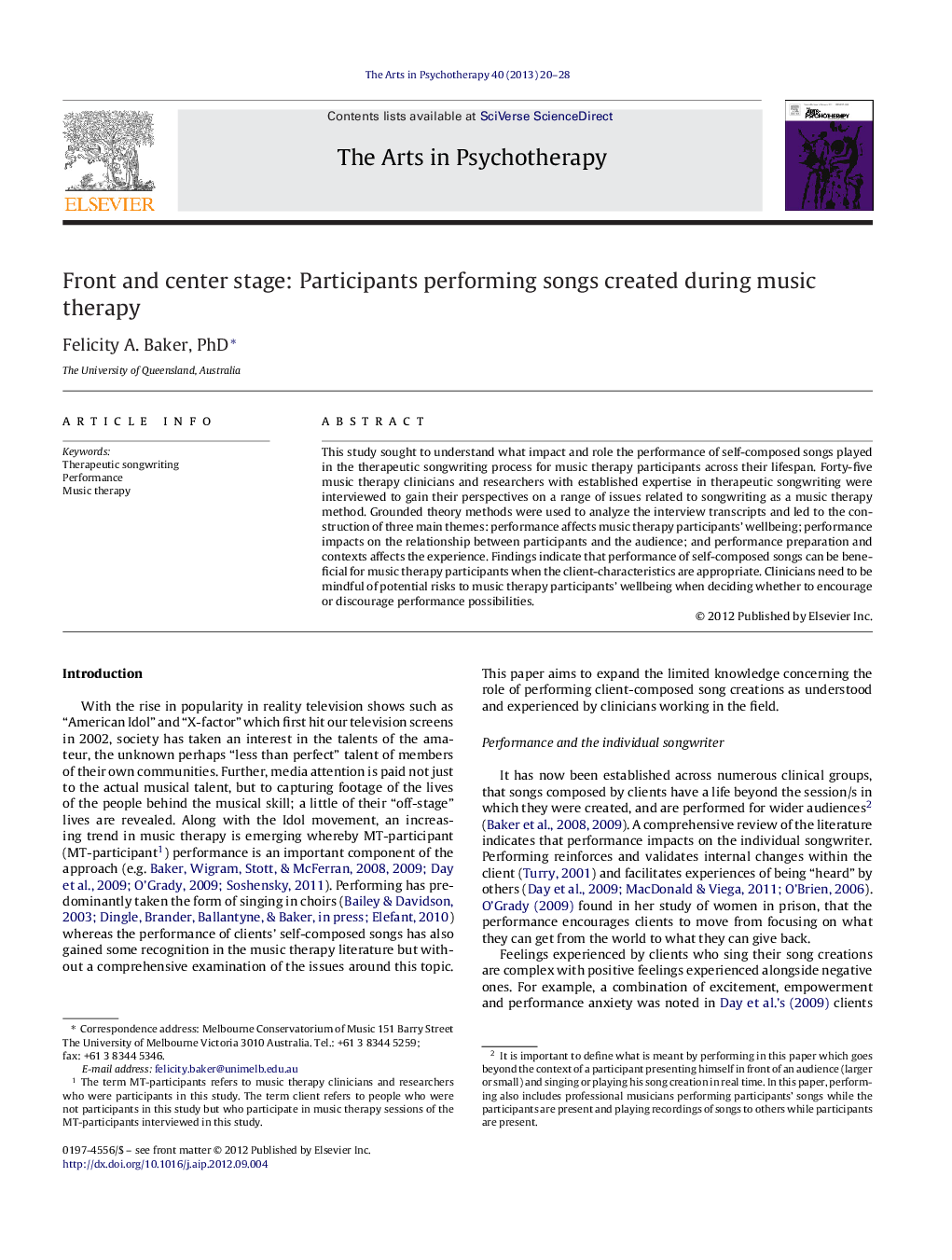| Article ID | Journal | Published Year | Pages | File Type |
|---|---|---|---|---|
| 343810 | The Arts in Psychotherapy | 2013 | 9 Pages |
This study sought to understand what impact and role the performance of self-composed songs played in the therapeutic songwriting process for music therapy participants across their lifespan. Forty-five music therapy clinicians and researchers with established expertise in therapeutic songwriting were interviewed to gain their perspectives on a range of issues related to songwriting as a music therapy method. Grounded theory methods were used to analyze the interview transcripts and led to the construction of three main themes: performance affects music therapy participants’ wellbeing; performance impacts on the relationship between participants and the audience; and performance preparation and contexts affects the experience. Findings indicate that performance of self-composed songs can be beneficial for music therapy participants when the client-characteristics are appropriate. Clinicians need to be mindful of potential risks to music therapy participants’ wellbeing when deciding whether to encourage or discourage performance possibilities.
